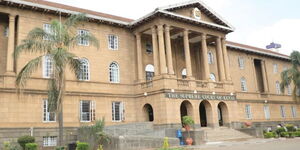The European Commission has placed Kenya in its updated list of high-risk jurisdictions presenting strategic deficiencies in their national anti-money laundering and countering the financing of terrorism regimes.
The commission said in a statement on Tuesday that it had added a number of third-country jurisdictions to its list, including Algeria, Angola, Côte d'Ivoire, Kenya, Laos, Lebanon, Monaco, Namibia, Nepal and Venezuela.
Kenya, which has in the past few weeks been putting in place strategic attempts to address the money laundering interventions.
The report means that Kenya and the affected countries have now entered the blacklist of the list of countries subject to extra monitoring of their money laundering controls.
The Financial Action Task Force (FATF), a Paris-based organisation that reviews efforts by more than 200 countries and jurisdictions to prevent money laundering and terrorism financing, compiles a "grey list" of nations that are subject to increased monitoring of financial transactions.
Meanwhile, Kenya’s Financial Reporting Centre has intensified the monitoring of suspicious financial transactions. The FRC has also expanded its scope of work with reporting institutions—especially banks, insurance firms, Saccos, and forex bureaus—through real-time transaction monitoring and enhanced due diligence protocols.
Parliament amended the Proceeds of Crime and Anti-Money Laundering Act (POCAMLA) to impose stiffer penalties for non-compliance, improve asset tracing mechanisms, and expand the range of businesses legally obligated to flag suspicious activity. The real estate and gaming sectors, often cited as high-risk, are now among those under tighter scrutiny.
In 2023, the government formed the Anti-Money Laundering and Combating Terrorism Financing Multi-Agency Team (AML/CFT MAT). This task force brings together institutions such as the FRC, Central Bank of Kenya, Kenya Revenue Authority (KRA), Directorate of Criminal Investigations (DCI), and the Ethics and Anti-Corruption Commission (EACC) to coordinate investigations into illicit financial flows, particularly in public procurement and the financial sector.
To complement enforcement, Kenya has also strengthened public-private partnerships. The Kenya Bankers Association, in collaboration with the Central Bank, has rolled out sector-wide compliance reviews, while telecom operators and fintechs have been roped into financial surveillance frameworks to monitor mobile money and digital transactions.
On Tuesday, the Director Investigations Bureau at DCI Headquarters, Abdalla Komesha, reaffirmed the detectives' commitment to investigating money laundering, terrorism financing, and major predicate offences, including organised crime.
In his address at the Financial Investigations and Asset Recovery workshop at the Kenya School of Government in Kabete, Nairobi, Komesha underscored the urgent need to evolve responses to keep pace with the ever-changing tactics employed by financial criminals.
“Proceeds of crime are no longer hidden under mattresses; they are laundered through complex corporate structures, layered across global bank accounts, and concealed within real estate or cryptocurrency. As the landscape of criminality transforms, so too must our response,” stated Komesha.












